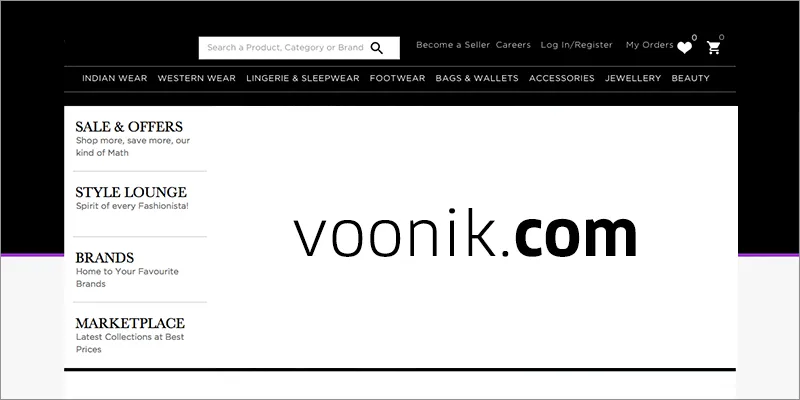After lukewarm response to mobile apps, is it 'ghar wapsi' to websites?
With low cost smartphones and better Internet penetration, mobile Internet growth has seen an upsurge in India. A report by IAMAI and KPMG projected that India will reach 236 million mobile Internet users by 2016, and 314 million by 2017. Earlier this year, Mary Meeker compared India’s Internet penetration of 2014 with China of 2008 and the US of 1996.
Many Indian startups and companies were quick to capitalize on this growing trend by either going app-only, app-first or shifting their main focus to their mobile app over other channels, during this year. Myntra was among the first Indian companies to adopt the app-only strategy shutting down their desktop and mobile websites. There was speculation that Flipkart would go app only by the end of 2015, but in the end they seem to have decided against it.

Image credit: Shutterstock
The ‘app-only’ or ‘app-first’ strategy worked well initially, as users were incentivised to download apps through discounts and offers. But now problems such as low memory storage on consumer devices, high user acquisition costs and uninstall rates, and no clear loyalty from users seem to have forced companies to rethink their strategy and go back to a multi-channel approach.
Flipkart recently launched ‘Flipkart Lite, their re-christened mobile website that provided a native app experience to users. Working closely with Google Chrome, the engineering team at Flipkart worked around many technical challenges to develop a native mobile website experience that consumes less data over the network and takes less time to render.
Close on the heels of this announcement, Snapdeal announced the launch of ‘Snap Lite’, a ‘lite version' of their mobile website. Snapdeal CPO Anand Chandrasekaran claimed on Twitter that this would make browsing on Snapdeal 85 percent faster across all mobile browsers.
Today, Voonik, a personal shopping app for women that is backed by Sequoia Capital and Seedfund, announced the launch of its new desktop experience. Voonik was founded in 2013 by Sujayath Ali and Navaneetha Krishnan. In August 2014, they launched their mobile app to offer a more personalized shopping experience to their users. The startup claims that though they say tremendous growth and scale through their app-only strategy, their aim now is to go after a larger consumer base by providing a multi-channel experience.

Voonik claims that according to App Annie data, their app is the largest player in the space of women-centric fashion in terms of market share and records the highest engagement in the e-commerce industry. In terms of numbers, Voonik claims an assortment of over 15 lakh products compared to less than two lakh items that other women-focused e-commerce apps have. Talking about their daily metrics and thought process behind the desktop website, Voonik CEO Sujayath, said,
Voonik is now doing 10,000 orders a day and this will increase to 15,000 in a month after our desktop launch. We are aiming for 20,000 daily orders by January. While the other e-commerce companies are switching to an app-only strategy, we think we are moving closer to our user base by providing them access to a personalized store across multiple platforms. We have the highest conversion rate in the industry for our app and we expect to get the highest conversion on desktop as well.
Sector overview
According to a Google India research, every third shopping search from India is fashion related and the queries in the category are growing at 66 percent year-on-year. Besides fashion, searches for style, beauty, and wellness tips are growing exponentially as well. This sector, focussed on women's’ fashion has seen a lot of activity from multiple players who have their own USPs. E-commerce platforms such as Myntra and Jabong have gone from pure-play marketplaces to marketplaces or platforms that focus on personalization with Myntra having its own product line.
Limeroad, a social discovery platform for women, had raised a $30M Series C round from Tiger Global and other existing investors in March 2015. Tiger Global-backed Roposo is positioning itself as a fashion focused social media platform. Most recently, curated fashion and lifestyle startup, Styletag.com secured Rs 50 crore angel funding from Jitu Virwani of Embassy Group.
Voonik has identified the total addressable women Internet audience at 40 million and the total women smartphone users at 21 million. Sujayath added, “Most of the new users will be first-time online shoppers. Having so far clocked 3.5 million app downloads for our app, we decided that the best way to capture a larger market share is to open its doors to a wider target audience across web and mobile.”
YourStory take
Going mobile app-only seemed like the logical route for many companies a few months ago, but a large chunk of customers still prefer to browse and shop through bigger screens. Despite the fact that over 70 percent of orders come from their app, Snapdeal refrained from taking the app only route. The sheer volume of apps (over 1.3 million across each app store) has forced players to revisit their app-only strategy and go back to basics, that is websites.
Experts also say that the online product discovery and shopping experience should be democratic in nature. Consumers should be given options to opt channels as per their convenience and preference. App-only strategy works well in verticals like grocery and food, among others.
At the end of the day, the customer is king, and keeping multiple channels of engagement open for end consumers seems to be the best option, at least for now. Maybe a year or so down the line when a larger percentage of the Indian population has access to higher end smartphones with 64 GB or 128 GB of internal space and more stable Internet connections, the time may be right to go ‘app-only’ again and ditch websites for good.
(With inputs from Jai Vardhan)







